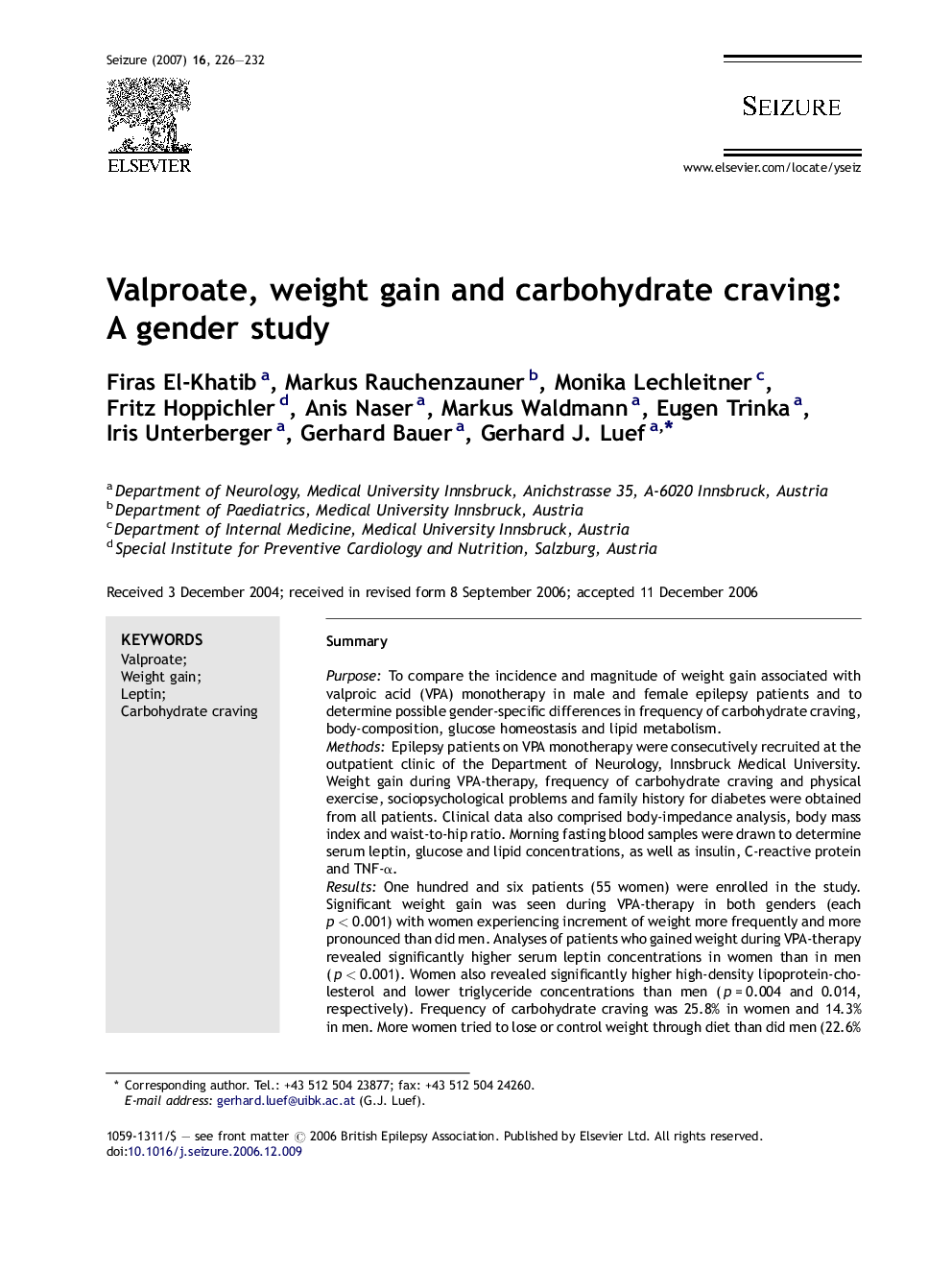| Article ID | Journal | Published Year | Pages | File Type |
|---|---|---|---|---|
| 340860 | Seizure | 2007 | 7 Pages |
SummaryPurposeTo compare the incidence and magnitude of weight gain associated with valproic acid (VPA) monotherapy in male and female epilepsy patients and to determine possible gender-specific differences in frequency of carbohydrate craving, body-composition, glucose homeostasis and lipid metabolism.MethodsEpilepsy patients on VPA monotherapy were consecutively recruited at the outpatient clinic of the Department of Neurology, Innsbruck Medical University. Weight gain during VPA-therapy, frequency of carbohydrate craving and physical exercise, sociopsychological problems and family history for diabetes were obtained from all patients. Clinical data also comprised body-impedance analysis, body mass index and waist-to-hip ratio. Morning fasting blood samples were drawn to determine serum leptin, glucose and lipid concentrations, as well as insulin, C-reactive protein and TNF-α.ResultsOne hundred and six patients (55 women) were enrolled in the study. Significant weight gain was seen during VPA-therapy in both genders (each p < 0.001) with women experiencing increment of weight more frequently and more pronounced than did men. Analyses of patients who gained weight during VPA-therapy revealed significantly higher serum leptin concentrations in women than in men (p < 0.001). Women also revealed significantly higher high-density lipoprotein-cholesterol and lower triglyceride concentrations than men (p = 0.004 and 0.014, respectively). Frequency of carbohydrate craving was 25.8% in women and 14.3% in men. More women tried to lose or control weight through diet than did men (22.6% versus 7.1%). Moreover, weight gain as a sociopsychological problem was more numorous in women than in men.ConclusionWomen are more prone to gain weight during VPA therapy though higher frequency of diet and sociopsychological burden than men, which might possibly be related to leptin-resitance and a higher frequency of carbohydrate craving.
